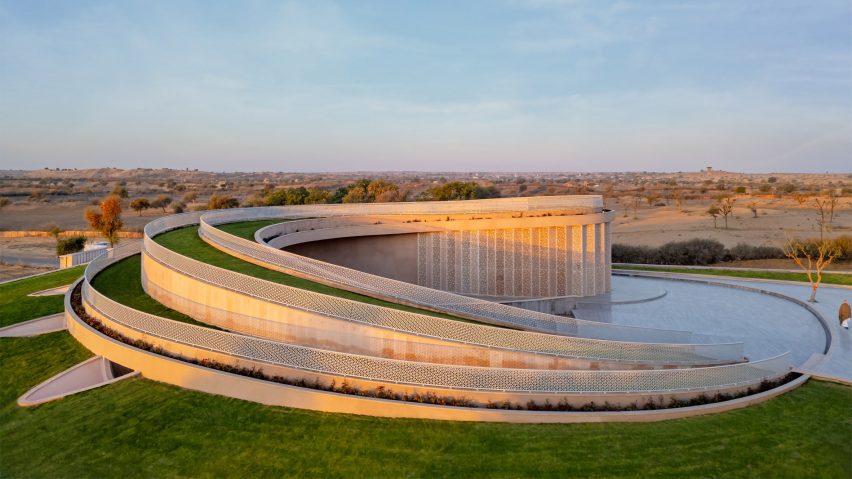
Sanjay Puri Architects unveils spiral-shaped Nokha Village Community Centre informed by sand dunes
Mumbai-based architecture studio Sanjay Puri Architects has designed a swirling community centre with a sloping green roof in Rajasthan, India.
Conceived as a memorial to the clients' father, the curvilinear complex was designed to serve the surrounding Nokha district villages and integrates a courtyard, amphitheatre, library and museum behind an undulating sandstone facade.
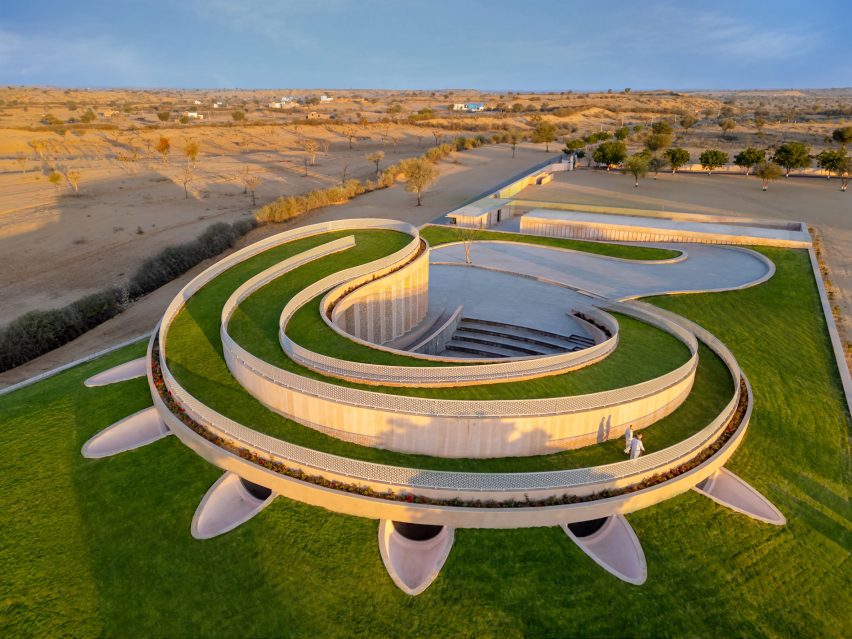
"The Nokha Village Community Centre is a vibrant hub for all age groups, providing a space for music, talks, and social interaction," Sanjay Puri Architects told Dezeen.
"The project exemplifies how thoughtful architecture can create expansive community spaces without a large footprint."
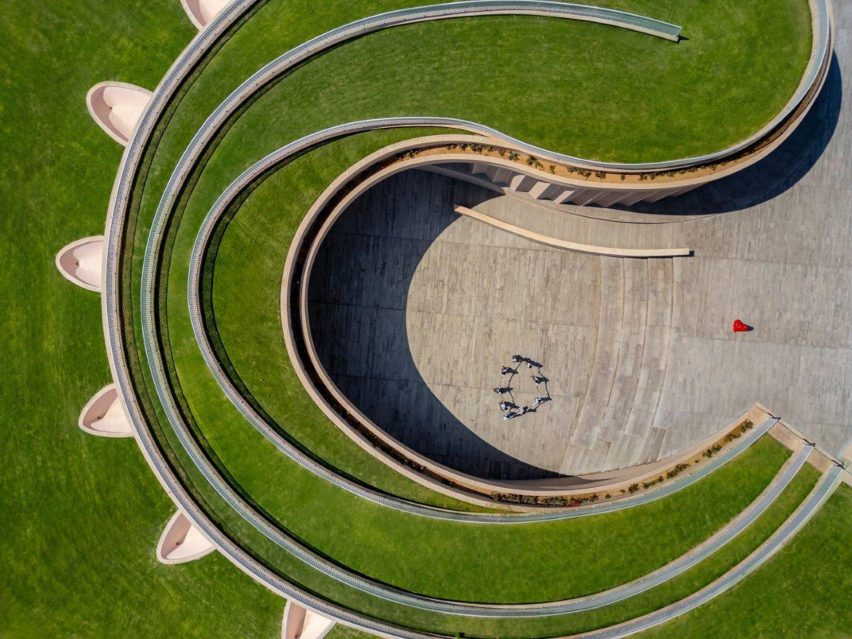
The complex's main functions were enclosed below the 9,000-square-foot 'swirl' and surrounding grassy berms, which carve a network of tilting pathways with views of the surrounding desert.
"Taking a cue from traditional Indian courtyards and sand dunes simultaneously, the built space swirls from the ground level to a nine-metre height, creating a semi-sheltered open amphitheatre & allowing the roof to be accessible as a garden space," the studio said.
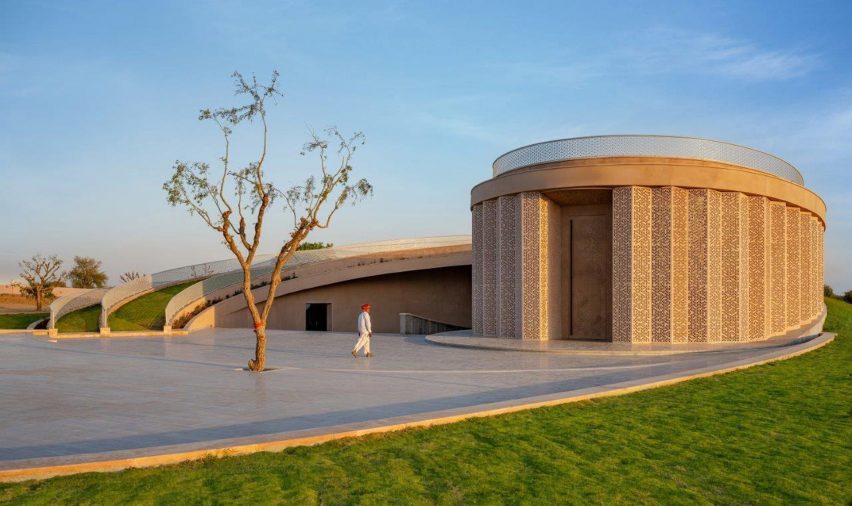
The lower edge of the structure houses a small museum and inclines towards the building's ovoid-shaped high point, which hosts a digital library for the local schools.
Between the museum and library, further multifunctional spaces curve through the building and flank the stepped amphitheatre and stage outside.
Gatherings and event spaces are located in a rectilinear amenities block at the site's entry that comprises a cafeteria, bathrooms, parking and storage.
In collaboration with local craftspeople, the building was constructed with a reinforced-cement concrete frame and clad in regionally sourced sandstone and lime plaster finishes.
"The use of traditional crafts and materials from its location, as well as the planning of an open courtyard sheltered from the southern side, imbibe from the heritage of the region and makes the design responsive to the desert climate," said Sanjay Puri Architects.
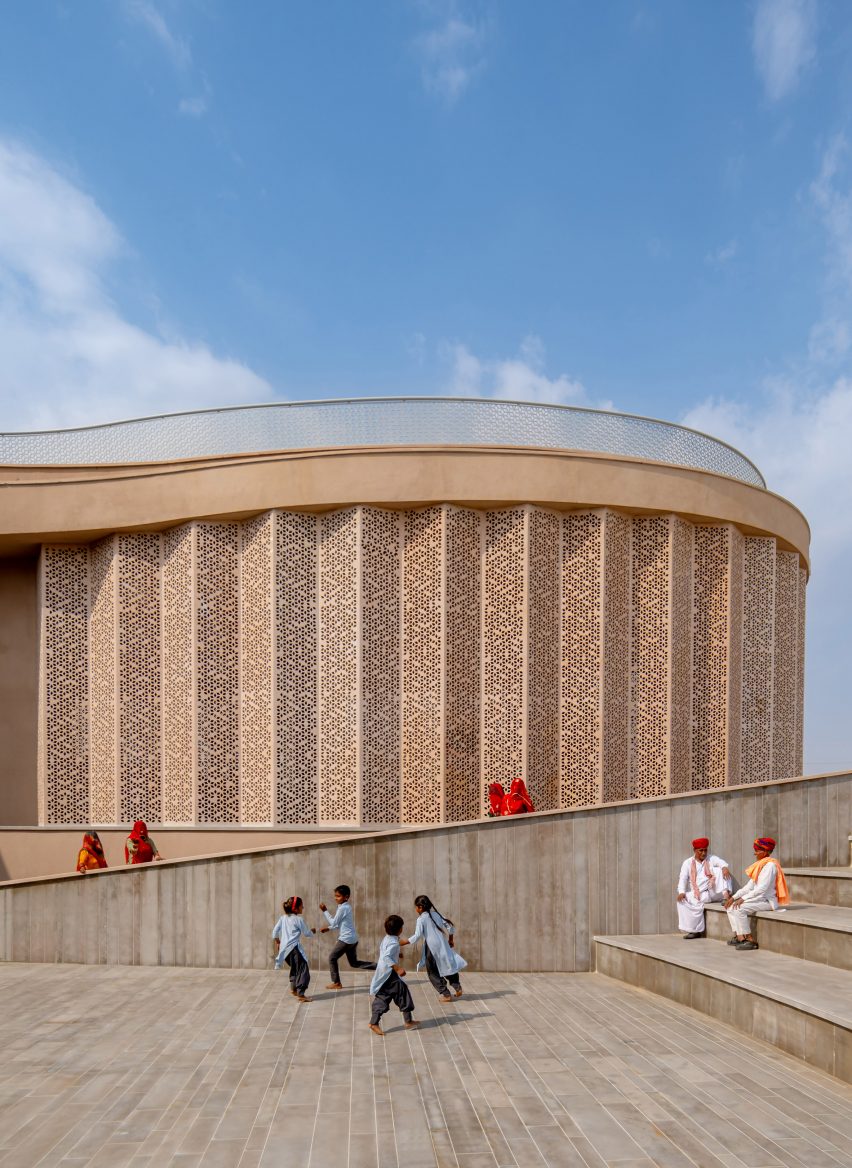
Sanjay Puri Architects encased the library with triangulated screens punctured by decorative patterns designed to play with light and shade throughout the day.
The community centre's internal spaces also receive natural light through a set of "scooped recesses" that were arrayed around the roof garden and extend underneath the grassy mounds.
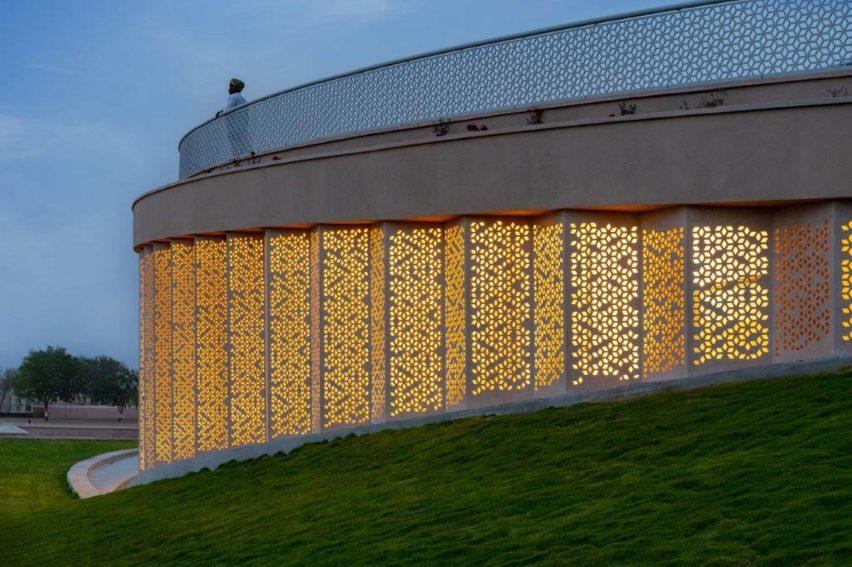
In addition to creating a bold visual statement, the centre's sweeping form and screened facade were designed to reduce the solar heat gain to enclosed areas.
"The rooftop garden and grass-covered berms on the southern side also help to mitigate heat gain in response to the hot desert climate," said the studio.
A rainwater harvesting and recycling system was also integrated through the inclined roof planes to increase the building's sustainability.
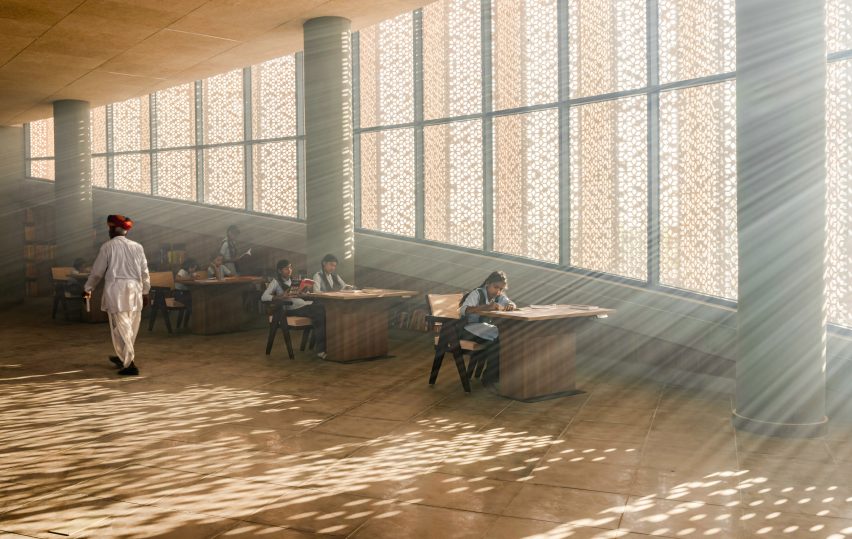
Sanjay Puri Architects was founded in 1992 by Sanjay and Nina Puri, who have built a global reputation for climate-responsive designs spanning the housing, education, cultural and commercial sectors.
The studio has previously designed a boxy and brightly coloured housing complex in Raipur, India, and an earthy, scallop-walled home in Bhilwara for a multi-generational family.
The photography is by Vinay Panjwani.